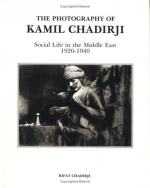|
This section contains 5,283 words (approx. 18 pages at 300 words per page) |

|
The Eighteenth Amendment to the Constitution prohibited the manufacture, sale, transportation, and import of intoxicating liquors in the United States. It did not meet much organized opposition when Congress passed it in late 1917. The country was involved in World War I, and Americans were highly idealistic. They were helping to save the world and make it safe for democracy. The notion of improving their own society by outlawing "demon rum" and other alcoholic beverages seemed right and proper.
By January 1919, the necessary threefourths of the states had ratified the amendment. Congress passed the Volstead Act in October 1919, defining intoxicating liquors, providing for agents to enforce the law, and setting penalties for its violation. "The Noble Experiment," as President Herbert Hoover would call it, went into effect at midnight on January 16, 1920, with apparent national support. "Goodbye, John Barleycorn. You were God's worst enemy. You were...
|
This section contains 5,283 words (approx. 18 pages at 300 words per page) |

|




